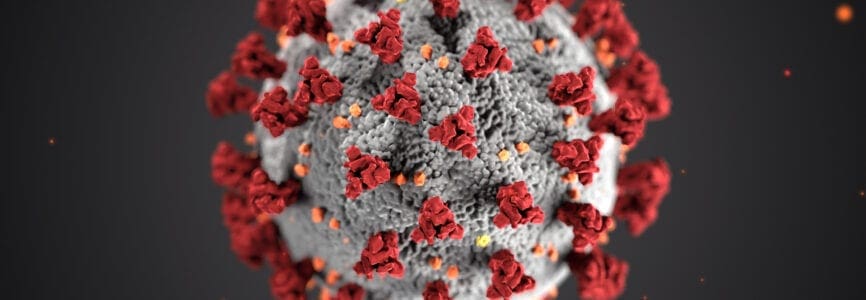Bioethics Forum Essay
Coronavirus Mutation Panic
The headlines are terrifying: A highly contagious new variant of the coronavirus is circulating in England. As the story spread, politicians and media outlets reported a devastating statistic: the new strain is 70% more transmissible than other strains of the virus. This has led to new lockdowns; many border closures; flight cancellations; and people fleeing the U.K. by train, boat, and plane. But is any of this necessary? Is the world suffering from mutation panic?
While renewed attention to the dangers of coronavirus are important, many key features were misrepresented or left out of the mutation story.
This variant is not new. Scientists have known about it for months. They have been tracking it the entire time. There is no experimental evidence to indicate that this variant is actually more lethal or that it is resistant to therapeutics or the newly-authorized vaccines from Pfizer and Moderna.
Most important government officials in the U.K. and media stories fail to mention the flimsy basis for the claim of 70% infectivity. Erik Volz at Imperial College London used, in his words, “noisy” data to generate the estimate of 70% more transmissibility. It was a single predictive model and he’s not entirely confident in his assessment. Neither are we. No experiment has confirmed his estimate of hugely increased transmissibility.
In his presentation about the mutated virus that has scared the world, Dr. Volz didn’t try to scare people. He offered caveats: the new strain could be taking over because of a fitness advantage or just by chance. The founder effect from holiday-related travel confounds the data he used and complicates our understanding of how this new variant is transmitted. But his qualifications and nuances have been discarded in favor of attention-grabbing headlines.
One man’s shaky model has had profound implications. It shouldn’t. Faulty reporting is a clear and present danger: it undermines science’s ability to call attention to proven threats when they actually emerge. Travel during the holidays to or from the U.K. or anywhere else is not a great idea given known transmission rates among family gatherings and parties. But without more evidence about the mutant virus there is no reason to panic.
Matt McCarthy, MD is an associate professor of medicine at Weill Cornell Medicine and an adjunct associate professor at City University of New York, where he co-teaches “Issues in Medical Ethics.” Twitter: @DrMattMcCarthy. Arthur Caplan, PhD, is the Drs. William F. and Virginia Connolly Mitty Professor of Bioethics and the founding director of the Division of Medical Ethics at the NYU Grossman School of Medicine. He is a Hastings Center fellow and a member of The Hastings Center’s advisory council, Twitter: @ArthurCaplan












